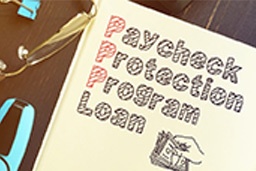As previously reported, Michelman & Robinson filed a first-of-its-kind lawsuit on May 4 against the U.S. Treasury Department, Treasury Secretary Steven Mnuchin, the Small Business Administration, and the SBA’s administrator Jovita Carranza on behalf of three tech companies. Our case—which challenges guidance from the SBA issued in consultation with Treasury as it relates to the necessity of PPP loan requests—is pending, and the defendants have until July 10 to respond. In the meantime, the SBA is facing other PPP-related litigation in U.S. Bankruptcy Courts, and a well-reasoned decision was just handed down by one of them supporting the ability of bankruptcy debtors to obtain PPP loans. The case, and sound logic of the bankruptcy judge presiding, should be of interest to bankruptcy debtors nationwide.
Cutting to the chase, a bankruptcy court in Tampa, Florida ruled this week over the SBA’s objection that debtors in bankruptcy are eligible for PPP loans—this by virtue of the fact that the express language of the PPP does not require applicants to certify they are not in bankruptcy. The decision is not only of critical importance to businesses that have filed for bankruptcy, but it also bodes well for M&R’s litigation against the SBA, et. al. to the extent the outcome hinged upon a close reading of the CARES Act, which gave rise to the PPP.
A Bit of Background
Gateway Radiology Consultants is a Chapter 11 debtor in St. Petersburg, Florida. In May 2020, a year after filing for bankruptcy, Gateway applied for and received a PPP loan. Thereafter, and as required by the Bankruptcy Code, it asked the bankruptcy court to approve its post-petition financing (e.g., the PPP loan). Toward that end, Gateway represented that it intended to use the loan proceeds for covered (read: forgivable) expenses. For its part, the SBA objected to the bankruptcy court making any order suggesting that Gateway is or was eligible to participate in the PPP, or that its PPP loan is subject to loan forgiveness.
The PPP and SBA’s Supplemental Rule
At the heart of the SBA’s argument is a supplemental rule it issued that bars bankruptcy debtors from obtaining PPP loans. Yet as the bankruptcy court pointed out, that rule is at odds with the PPP as contemplated by Congress.
The CARES Act is the largest stimulus package in history, and its crown jewel, the PPP, has provided hundreds of billions of dollars in funding to small businesses to cover payroll, mortgage interest, rent, and utility costs. What is extraordinary about PPP loans is that if used properly, they are forgiven, meaning that borrowers are the beneficiaries of free money (or grants) when they use their loans to pay for covered expenses.
Because the loans are designed to be forgiven, both Congress and the SBA dispensed with the SBA's typical underwriting requirements. In fact, to qualify for a PPP loan, all a qualified borrower is required to do is make a handful of certifications in good faith (e.g., that because of the economic uncertainty caused by COVID-19, the loan is needed for ongoing operations, etc.). Of note, nowhere in the CARES Act is it contemplated that a borrower must certify that it is not in bankruptcy at the time a PPP loan is applied for. Nevertheless, weeks after the PPP became effective, the SBA issued its interim final rule stating that debtors in bankruptcy are ineligible for PPP loans because they are more likely to use loan proceeds for non-covered expenses and less likely to be able to repay portions of loans that are not forgiven.
The Gateway Ruling
Gateway asked the bankruptcy court to command the SBA not to disqualify it from the PPP by virtue of its status as a bankruptcy debtor. And that is exactly what the bankruptcy court did. Specifically, it was determined that the SBA administrator exceeded her authority when issuing the rule prohibiting bankrupt parties from qualifying for PPP loans. The bankruptcy court made clear that Congress could have required PPP borrowers to certify that they are not in bankruptcy, but it chose not to. Consequently, the SBA sought to impose a rule that was contrary to the CARES Act and the intent of Congress in passing it.
As if to add an exclamation point to its decision, the bankruptcy court went on to state that even if the SBA administrator had not exceeded her authority, the rule disqualifying Gateway from participating in the PPP is unlawful because it (1) considered factors like collectability that Congress did not intend to be a part of the PPP equation; (2) failed to recognize how the bankruptcy process promotes the same public policy as the CARES Act; and (3) was contrary to the evidence (e.g., Chapter 11 debtors are less likely to use PPP loans for non-covered expenses and more likely to repay them).
For all these reasons, the bankruptcy court gave the green light to Gateway—and by extension, all bankruptcy debtors—to participate in the PPP, which is great news for companies struggling in the shadow of COVID-19. Still, it must be understood that some bankruptcy courts throughout the U.S. could have a difference of opinion on this issue.
Should you believe your company may be a current or future candidate for a bankruptcy filing, or if you find yourself in a position similar to Gateway, the lawyers in M&R’s Bankruptcy & Restructurings Practice Group can guide you through the process.
This blog post is not offered, and should not be relied on, as legal advice. You should consult an attorney for advice in specific situations.

